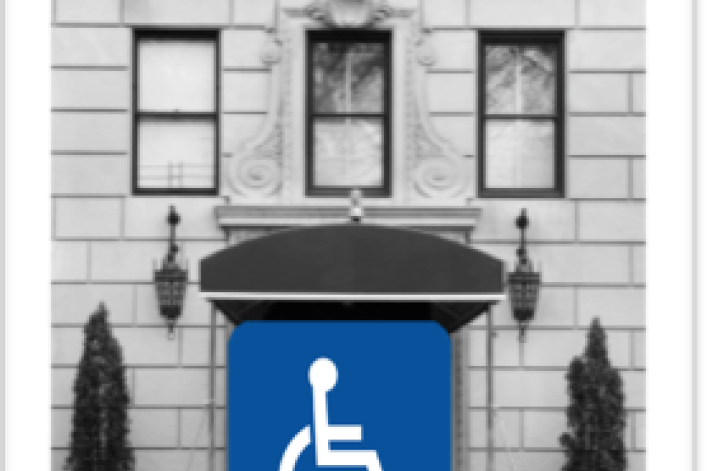The Board Room: Bronx court says disabled residents entitled to use the front door

In a decision that affects all residential buildings in New York City, a Bronx Supreme Court ruled last month that front entrances must be made handicapped-accessible at the request of a disabled resident, unless doing so would be physically impractical and cost prohibitive.
This marks a dramatic--and potentially expensive--change from the past. Co-ops, condos and landlords have traditionally been able to satisfy the "reasonable accommodation" requirement of the New York City Human Rights Law by providing access through a side entrance or a service entrance, which in many cases may come pre-equipped with a ramp used for deliveries.
It appears that won't be good enough anymore. The judge in Riverbay Corp. v. N.Y.S. Commission on Human Rights (PDF attached) found that an isolated, remote-controlled side entrance--lacking security guards and video surveillance--was so "meaningfully different" from the front entrance that it made a "second-class citizen" of a wheelchair-bound co-op owner suffering from cerebral palsy.
In the wake of the Riverbay decision, side entrances will satisfy the law only where retrofitting the front entrance is impossible. Five years ago in Pelton v. 77 Park Ave. Condo, for example, an appellate court found that a condominium's offer of a temporary access plan accompanied by long-term access through the building's storage room was a reasonable accommodation only after the court determined that installing ramps at the front entrance was both physically impractical (for example, it cannot structurally be accomplished) and cost prohibitive (such as in instances when low income cooperatives are presented with a proposal that would exceed what they would be able to afford and/or to raise by way of an assessment).
Based on the forgoing, it is recommended that when a disabled resident asks a co-op or condo board to provide reasonable accommodation for handicapped access, the board should hire experts to determine whether it is both architecturally and economically feasible to alter the front entrance of a building to provide for access.
If both can be answered in the affirmative, front entrance access must be provided. If the building has historically provided access by means of a side or back entrance, if requested, they should review their procedures with the holding of the Riverbay court in mind.
Andreas E. Theodosiou, Esq., is a partner at the law firm of Braverman & Associates, specializing in the representation of New York City co-op and condominium boards.
























